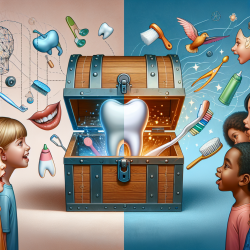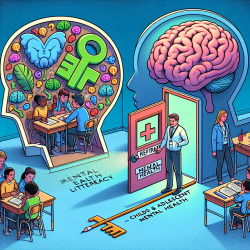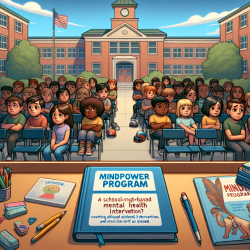The research article "Cumulative life-course victimization and inflammation in a U.S. national sample: Comparing intersections based on sexual orientation, gender, race/ethnicity, and education" presents critical insights into how cumulative victimization impacts inflammation among lesbian, gay, and bisexual (LGB) individuals. This blog post explores these findings and provides actionable strategies for practitioners to enhance their support for LGB individuals.
The Link Between Victimization and Inflammation
The study highlights that LGB individuals are at a higher risk of experiencing victimization throughout their lives compared to heterosexuals. This victimization is linked to low-grade inflammation, a condition that can lead to chronic diseases such as cardiovascular disease and cancer. The research utilizes data from the National Longitudinal Study of Adolescent to Adult Health (Add Health) to explore these associations.
Low-grade inflammation is measured through biomarkers like C-reactive protein (CRP), which indicate the body's immune response. The presence of such inflammation without infection suggests biological dysregulation due to chronic stressors like victimization.
Intersectionality and Its Role
The study delves into how intersectional identities—combinations of sexual orientation with gender, race/ethnicity, and educational attainment—affect victimization rates and subsequent inflammation. For instance, LGB females and those with less than college education face higher rates of cumulative life-course victimization, leading to increased inflammation levels.
This intersectional approach is crucial as it acknowledges that individuals experience multiple layers of discrimination based on their intersecting identities. These experiences compound over time, exacerbating health disparities.
Implications for Practitioners
- Develop Culturally Competent Care: Practitioners should be aware of the unique challenges faced by LGB individuals with intersecting marginalized identities. Training should include cultural competence to better address these complexities.
- Create Safe Spaces: Establishing environments where LGB individuals feel safe and supported can reduce the chronic stress associated with victimization.
- Advocate for Policy Changes: Support policies that protect LGB individuals from discrimination and violence. Encourage legislative measures that promote equality and safety in various settings.
- Pursue Further Research: Encourage ongoing research into the specific needs of LGB populations, particularly those with intersecting identities. This will help tailor interventions more effectively.
The Path Forward
The findings underscore the importance of addressing cumulative life-course victimization as a means of preventing biological dysregulation among LGB individuals. Practitioners play a vital role in mitigating these effects through advocacy, education, and direct support.
This research opens avenues for further exploration into how societal structures contribute to health disparities among marginalized groups. By understanding these dynamics, we can work towards more equitable health outcomes for all individuals.










